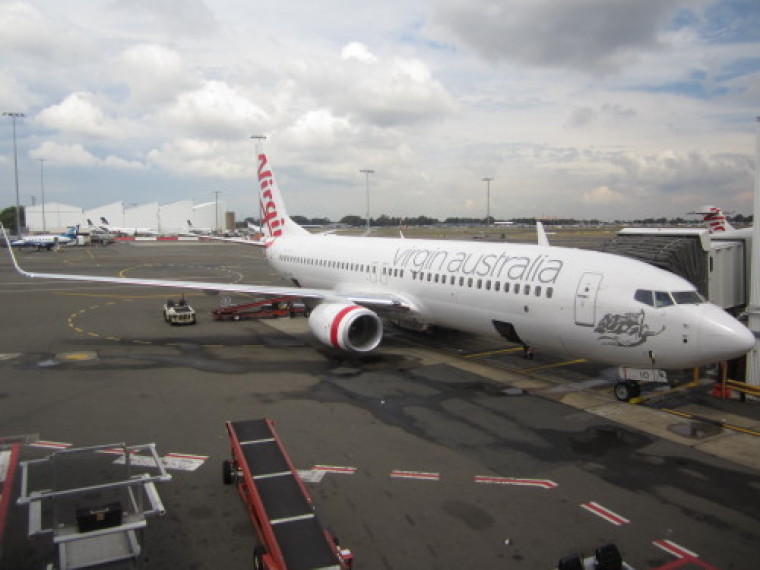
Natalie Craig explained in the article that while the current camera phone with the highest resolution on the market - the Nokia 808 - has a 41-megapixel sensor, this new camera named the ''AWARE-2'' can take snapshots of up to 1000 megapixels, or 1 gigapixel.
The researchers are now building a video-camera capable of capturing gigapixel images at the rate of about 10 per second. An even faster camera could allows fans watching a football game to zoom in on the player of their choice, rather than relying on the discretion of the cameraman but it seems likely its greatest benefit will be in policing and military. (www.smh.com.au)
CTT footage has been used widely in policing for some years now and a recent court case saw a $59 fine overturned and with the cyclist being awarded $3200 as a result of such video footage. (www.smh.com.au)
Likewise a murder case was resolved partly due to such CTT footage and these types of situations law enforcement rely on such video footage. (www.smh.com.au)
The London Olympics was security and safety enhanced by the existing and increased CTT footage on every street corner (as it were) which has already been a huge bonus to law enforcement in the UK. Moreover, any recently made television police drama from Britain and the US shows the efficacy of CTT footage.
We might imagine the many positives and negatives of "every day citizen" having such a digital camera that can take a close up pic a kilometer away. We saw the benefit of ordinary people having digital video cameras, such as video footage of 9/11.
Civil Libertarians
Civil Libertarians will have a field day. Personal space will no longer be personal space. The scenarios are legion from being photographed through a bedroom window to going about your business and poking a funny face when about to sneeze. Even today there are huge concerns with normal cameras on the beach, the pool, the school and the like.
On-line scenarios will be of great concern to everyone. Such a photograph could be uploaded without the slightest concern for privacy. It is bad enough now when friends and associates upload photographs one might prefer stayed hidden, but with a digital hand camera with a kilometer up close and personal range, the situation becomes a whole lot more precarious.
Those in the public eye already deal with the paparazzi long-lens, (illustrated by the photographs of the Duchess of Cambridge when she was holidaying with her husband Prince William in France) but imagine that in this situation, every fellow citizen could be on the look-out for that $50,000 photo and all from a camera in the top pocket or the hand bag.
This already occurs to some degree as many people today carry with them hand held video cameras and we've all witnessed the outcomes when they've captured vital 'news' stories such as aircraft scenarios, motoring incidents, domestic conflicts and as described above, 9/11 is the classic example.
While these negatives are acknowledged, there are many positives associated with such a technology whereby someone might be on hand to snap a vital incident up close, albeit a kilometer away.
One might imagine how it could be well used by law enforcement, security situations, the military, even citizens unknowingly snapping illegal acts. Few reasonable people would deny such benefits. Imagine additional video footage being available to Police from the 16 September Sydney Islamist riots in Sydney.
Handy for Christian Missions
Christian missionaries might also find such a camera very helpful in their ministries whereby they could capture their charges in hilarious situations for the church concert night - builds bridges of communication.
Already there are Bible Apps whereby people can read or listen to the Scriptures on their mobile phones, as indeed I do when travelling (my phone has both Apps for the Bible text and the audio Bible).
I can imagine such a digital camera having various Apps, such as power-point App which would be very handy for Christian ministry along with other such 'Buck Rogers' ministry applications.
In the not too distant future, perhaps the preacher turns on his pocket digital camera with an App that displays on a big screen – and what a huge plus in mission situations. Buck Rogers, eat your heart out!
Dr Mark Tronson is a Baptist minister (retired) who served as the Australian cricket team chaplain for 17 years (2000 ret) and established Life After Cricket in 2001. He was recognised by the Olympic Ministry Medal in 2009 presented by Carl Lewis Olympian of the Century. He has written 24 books, and enjoys writing. He is married to Delma, with four adult children and grand-children.
Mark Tronson's archive of articles can be viewed at www.pressserviceinternational.org/mark-tronson.html
